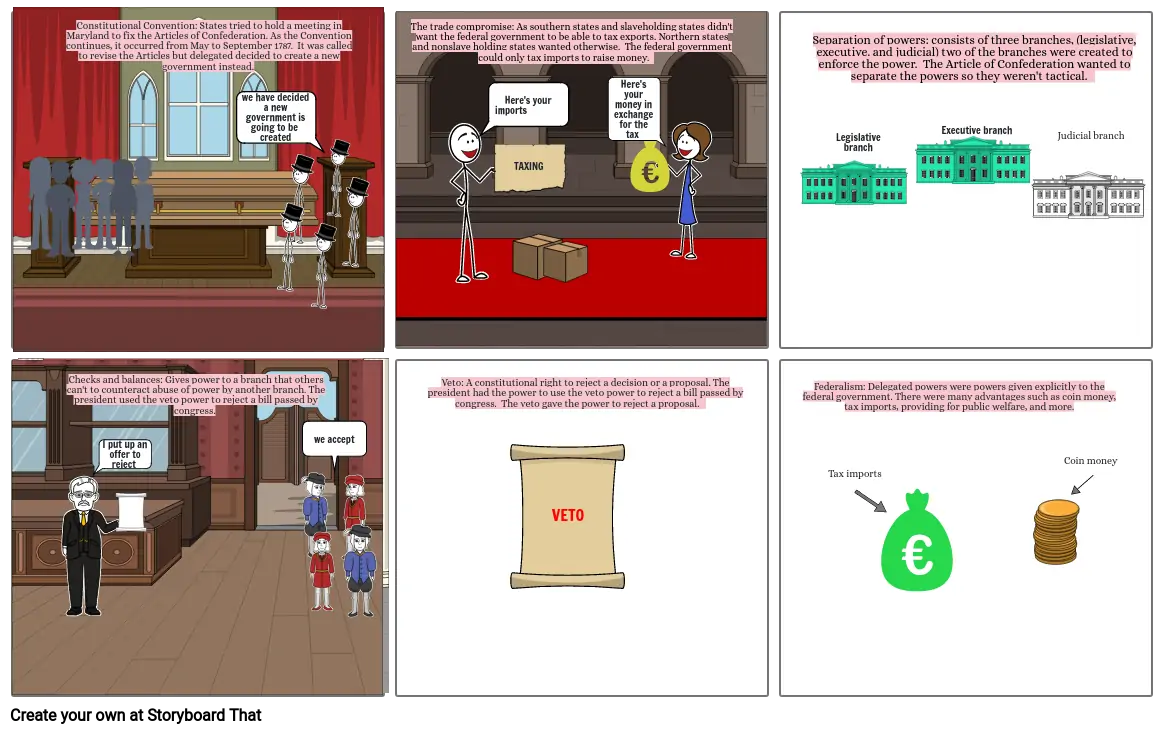constitutional convention

Text z Príbehu
- Constitutional Convention: States tried to hold a meeting in Maryland to fix the Articles of Confederation. As the Convention continues, it occurred from May to September 1787. It was called to revise the Articles but delegated decided to create a new government instead.
- we have decided a new government is going to be created
- The trade compromise: As southern states and slaveholding states didn't want the federal government to be able to tax exports. Northern states and nonslave holding states wanted otherwise. The federal government could only tax imports to raise money.
- Here's your imports
- TAXING
- Here's your money in exchange for the tax
- Separation of powers: consists of three branches, (legislative, executive. and judicial) two of the branches were created to enforce the power. The Article of Confederation wanted to separate the powers so they weren't tactical.
- Legislative branch
- Executive branch
- Judicial branch
- Checks and balances: Gives power to a branch that others can't to counteract abuse of power by another branch. The president used the veto power to reject a bill passed by congress.
- I put up an offer to reject
- we accept
-
- Veto: A constitutional right to reject a decision or a proposal. The president had the power to use the veto power to reject a bill passed by congress. The veto gave the power to reject a proposal.
- VETO
- Federalism: Delegated powers were powers given explicitly to the federal government. There were many advantages such as coin money, tax imports, providing for public welfare, and more.
- Tax imports
- Coin money
Bolo vytvorených viac ako 30 miliónov storyboardov

